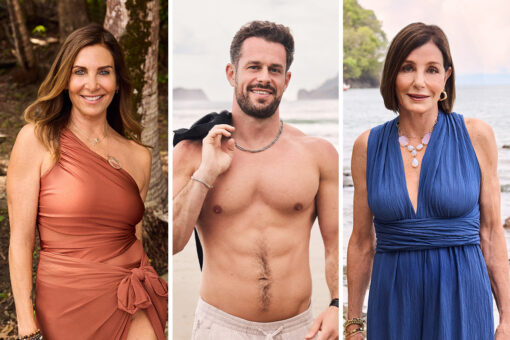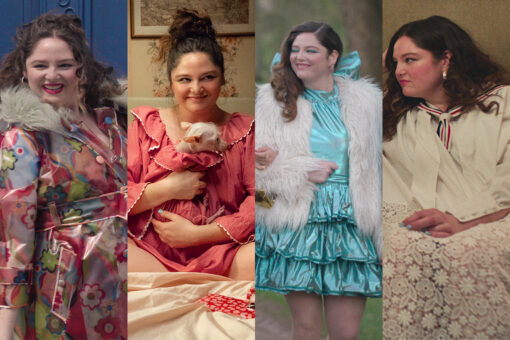On February 24, 2022, Russia launched a full-scale invasion of Ukraine. Within the first few weeks alone, the world saw news stories about mass graves, large-scale deportations, torture chambers, book burnings and other atrocities — atrocities which echo those of the Nazi regime. Something inside me changed during the final week of February last year as I realized that whatever I did during this time is what I would have done during the Holocaust.
My mother’s family came to the United States in the 1930s from Eastern Europe — Belarus and Latvia, by all accounts, but back then it was just called “Russia.” They were fortunate to emigrate before the Holocaust, but their exodus from their native countries was forced upon them by another violent regime: the Soviet Union.
As leader of the Soviet Union, Joseph Stalin forbade all religion. Often using violent tactics, he shut down all churches, synagogues, and mosques, trying to enforce universal atheism. These broader religious policies followed antisemitic violence under the Russian Empire that lasted more than 100 years, and preceded even more antisemitic policies in the USSR throughout the 20th century: quotas of Jewish students in universities, a post-World War II “anti-cosmopolitan campaign” designed to persecute Jews, and more.
As a child, I couldn’t even begin to understand this history. I don’t think we really touched upon it much in school; I never made the connection that all of my Eastern European friends were Jewish, or wondered why we all called ourselves Russian Jews when many of us weren’t actually Russian. Our history books rarely mentioned Judaism outside of the context of the Holocaust.
So, though my grandparents’ families were privileged not to be directly impacted by the Holocaust, I grew up with a deep reverence for those who were. I developed an obsession with learning more about the Holocaust through history books, first-hand accounts and even historical fiction from that time, often rooted in the personal experience of the author’s grandparents. I remember reading “The Diary of Anne Frank” over and over, each time hoping it would somehow end differently. I always grappled with the question of how did the world let this happen? Not in a profound way, but in the way that a child needs to believe that the world is ultimately good.
One of the last pillars of my childhood naiveté to fall was the notion that this would never happen again.
The final days of February last year abruptly and deeply altered my sense of reality. Nothing felt real as I sat constantly glued to the news, my brain trying to make sense of the images I was seeing. After a few days of pure shock, I brought some flowers to my Ukrainian neighbor next door. She told me that her niece and nephew were living in a bomb shelter, and that she couldn’t believe any of this, either.
This snapped me back to reality, and a sense of duty started to take over. I had to do something, but what? I am a 5’1” mother of toddlers who has never held a gun. “I think you might get in the way,” said my husband, treading very carefully, when I said I wanted to go to Ukraine and fight.
Not knowing what to do, I started to learn Ukrainian. I wanted to understand President Zelensky’s nightly addresses about the war, and what Ukrainians were saying about what was happening to them. Learning Ukrainian gave me a sense of solidarity and focus. Through the language, I have made incredible connections with people in Ukraine and around the world who are making a difference in the lives of those impacted by this unprovoked invasion. I changed the course of my career to devote more of myself to working with Ukrainian organizations. Fifteen months after the invasion began, all of my time and energy goes toward supporting this country I have come to love so much.
These changes I’ve made to my life in support of Ukraine are drastic enough that people I know regularly ask me, “Hey, so, what’s up with that?”
It is in those moments that I need to collect myself, especially when asked by a Jewish friend or relative. There is a feeling of betrayal inside me that I don’t want to express, but another part of me that wants to scream, “Didn’t we promise ‘Never Again’?”
Through my work supporting Ukraine, I have come to learn so much about the history of Jews and Judaism in Eastern Europe.
I am ashamed to admit that I didn’t know until 2022 that Ukraine was the country in which the largest number of Jewish people were murdered during the Holocaust. It’s estimated that one in every four Jewish victims of the Holocaust was murdered in Ukraine. There are many Ukrainians alive today whose lives began during one genocide and are ending in another.
I knew little about the pogroms that aimed to eradicate and expel Jews from the Russian Empire, specifically Ukraine. I knew only bits and pieces about the Soviet repression of Judaism that forced my family to leave their home countries. I have learned a lot about the shared history of pain between Jewish and Ukrainian people, but there is still so much of this centuries-long saga I don’t yet know.
It has become almost a cliche these days to say, “I’d like to stop living through major historical events!” Without the hindsight of history books, it can be difficult to wrap our minds around the crises of the day as they keep coming at us. One thing is crystal-clear, though: When we come across headlines out of Ukraine detailing atrocities, we are reading the stories of trauma that will get passed down through these families for years to come, just like the ones our ancestors passed down to us.
There may come a day when our grandchildren ask us what we did during this time, what it was like to watch the world allow a genocide to happen. I remember as a teenager asking my non-Jewish paternal grandmother, who was a young adult in New York City during the Holocaust, what it was like to live through it. “We just kind of went about our lives,” she told me. I was shocked when she said that, but chalked it up to my youthful belief that anything pre-Y2K was the Stone Age, and she must not have heard much about what was going on at the time.
Now, there is an endless stream of information for people who care to know what is happening in Ukraine. Journalists have created entire podcasts about it. Teenagers make TikToks about what it’s like to live in a bomb shelter. I have seen too much to just go about my life knowing that this is happening.
Maybe with hindsight, I will have an eloquent reason to give to my grandkids if they do ask me why. For now, all I can say is that my support for Ukraine is inextricably connected to my Judaism. That when my mother’s family left everything they knew to come to the United States in search of religious freedom, they gifted me a life of opportunity, privilege and safety they never knew. That I honor their memory by devoting every fiber of my being to combating modern-day horrors that so chillingly mirror the past.



